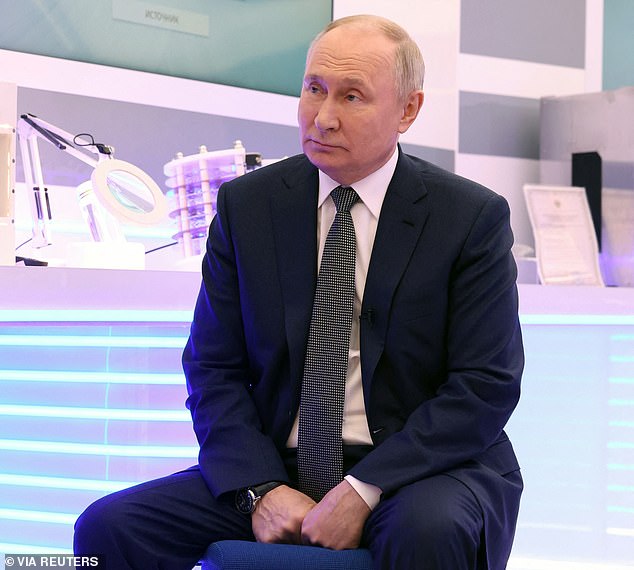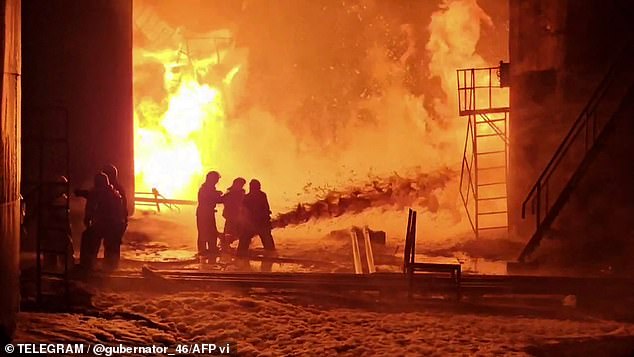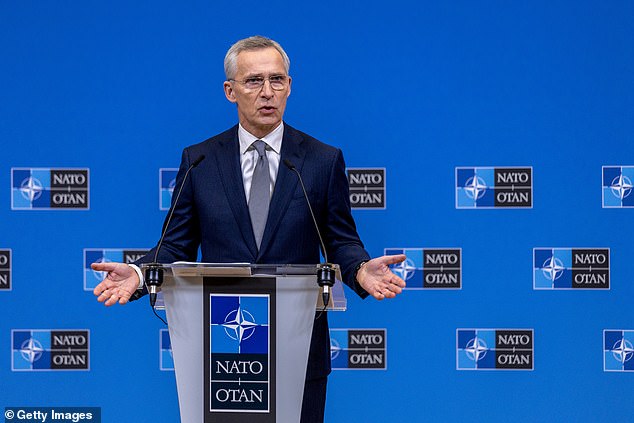The head of Nato warned that peace cannot be taken for granted as defense ministers met yesterday to discuss the growing threat from Russia.
Jens Stoltenberg’s chastening words came as fears grew over the Kremlin’s plans to deploy a nuclear-capable anti-satellite weapon in space.
US officials have been shown “very troubling” evidence that Moscow is developing capabilities to override global communications.
The revelations came as Stoltenberg discussed the “deteriorating security environment” with defense ministers of the alliance states in Brussels.
He said: “We can never take peace for granted, but we do not see an imminent military threat against the alliance.”
NATO chief warned peace cannot be taken for granted amid growing threat from Russia

Fears are growing over the Kremlin’s plans to deploy a nuclear-capable anti-satellite weapon in space.
‘NATO continues to ensure that there is no room for miscalculation in Moscow about our willingness to protect all allies.
“I am confident that NATO will remain the strongest and most successful alliance in history.”
Defense Secretary Grant Shapps, who was at the summit, announced that the UK will supply thousands of drones to Ukraine, at a cost of £200 million and in partnership with Latvia.
Small unmanned vessels can be used to clear mines, monitor and destroy enemy ships. Ukraine’s military released footage earlier this week showing how a marine drone was used to destroy a Russian landing ship in the Black Sea.
Mr Shapps said: “Together, we will give Ukraine the capabilities it needs to defend itself and win this war, to ensure Putin fails in his illegal and barbaric ambitions.”
Meanwhile, Mike Turner, Republican head of the US House of Representatives intelligence committee, urged the Biden administration to declassify the information it had on Russia’s anti-satellite weapons.

Firefighters work to extinguish a fire at an oil depot in the Kursk region of Ukraine.
He said the weapons posed a serious threat to national security because they would pose a great danger to US satellites that transmit billions of bytes of data every hour.
NATO has said Ukraine can become a member but has not yet confirmed when and rejected a “fast track” application for membership in September 2022.
The Moscow regime is firmly opposed to the idea of Ukraine joining the alliance, fearing bringing its forces too close to its own territory.
NATO has not sent weapons directly to Ukraine, but several member countries have, including the United Kingdom, the United States and Turkey.

